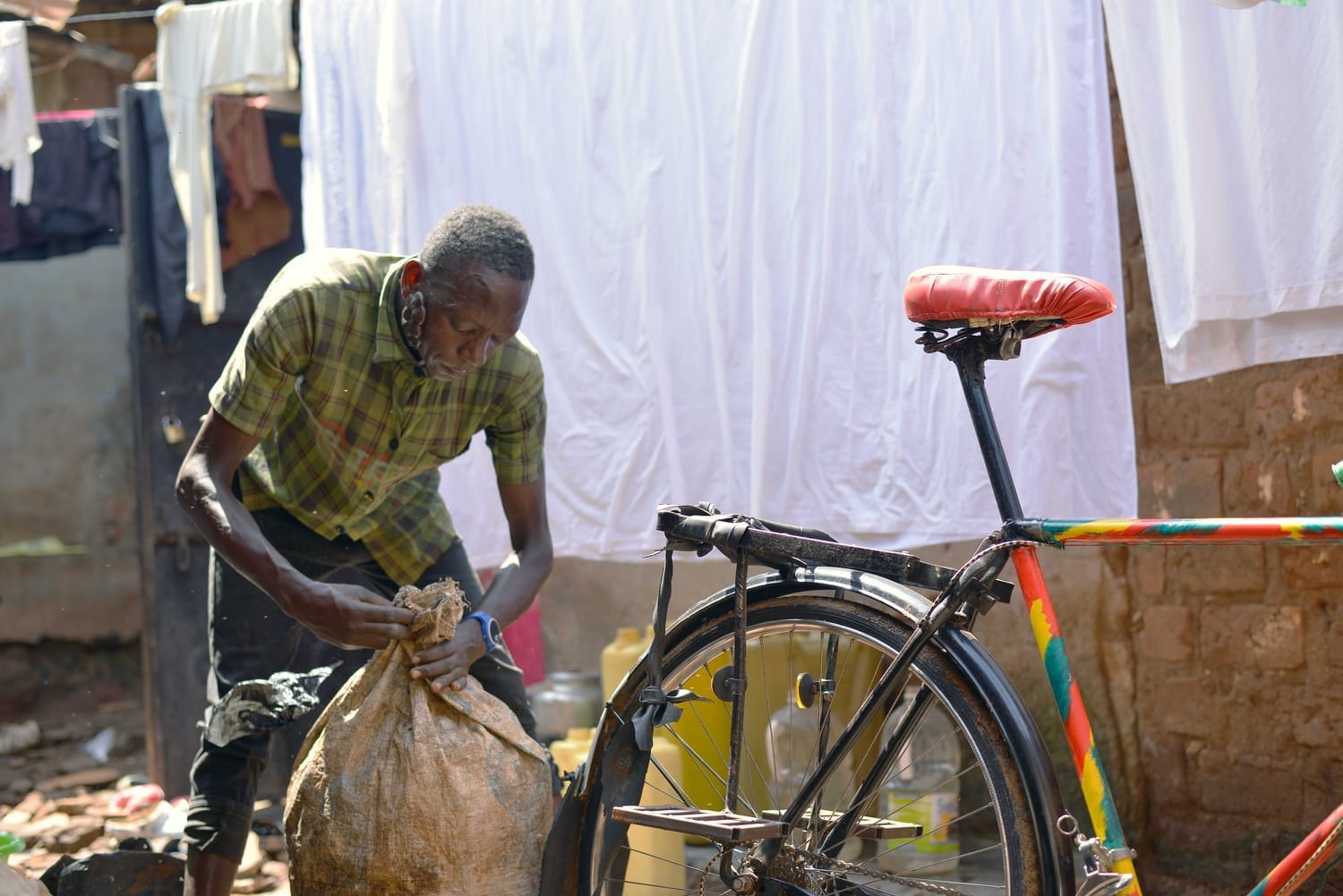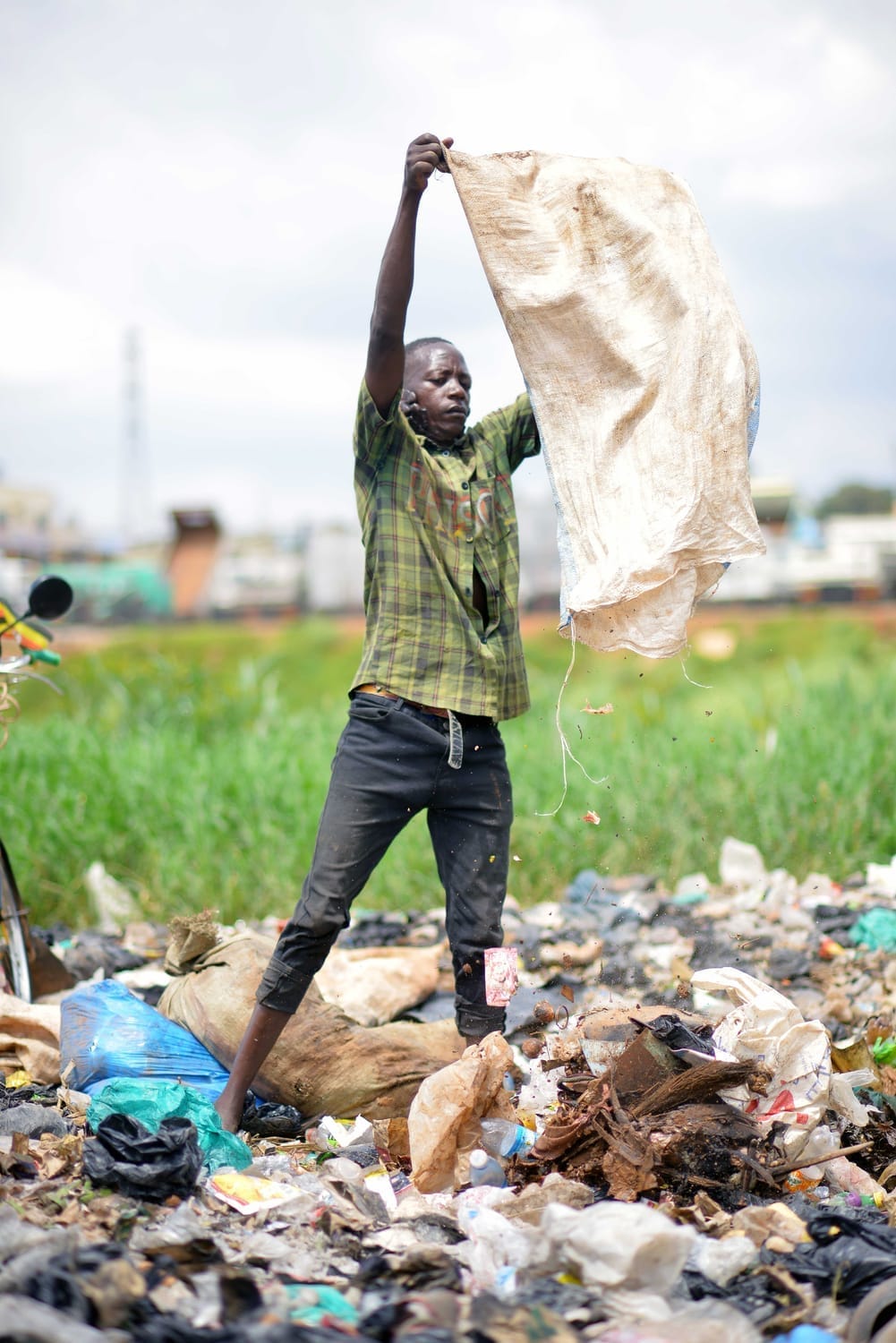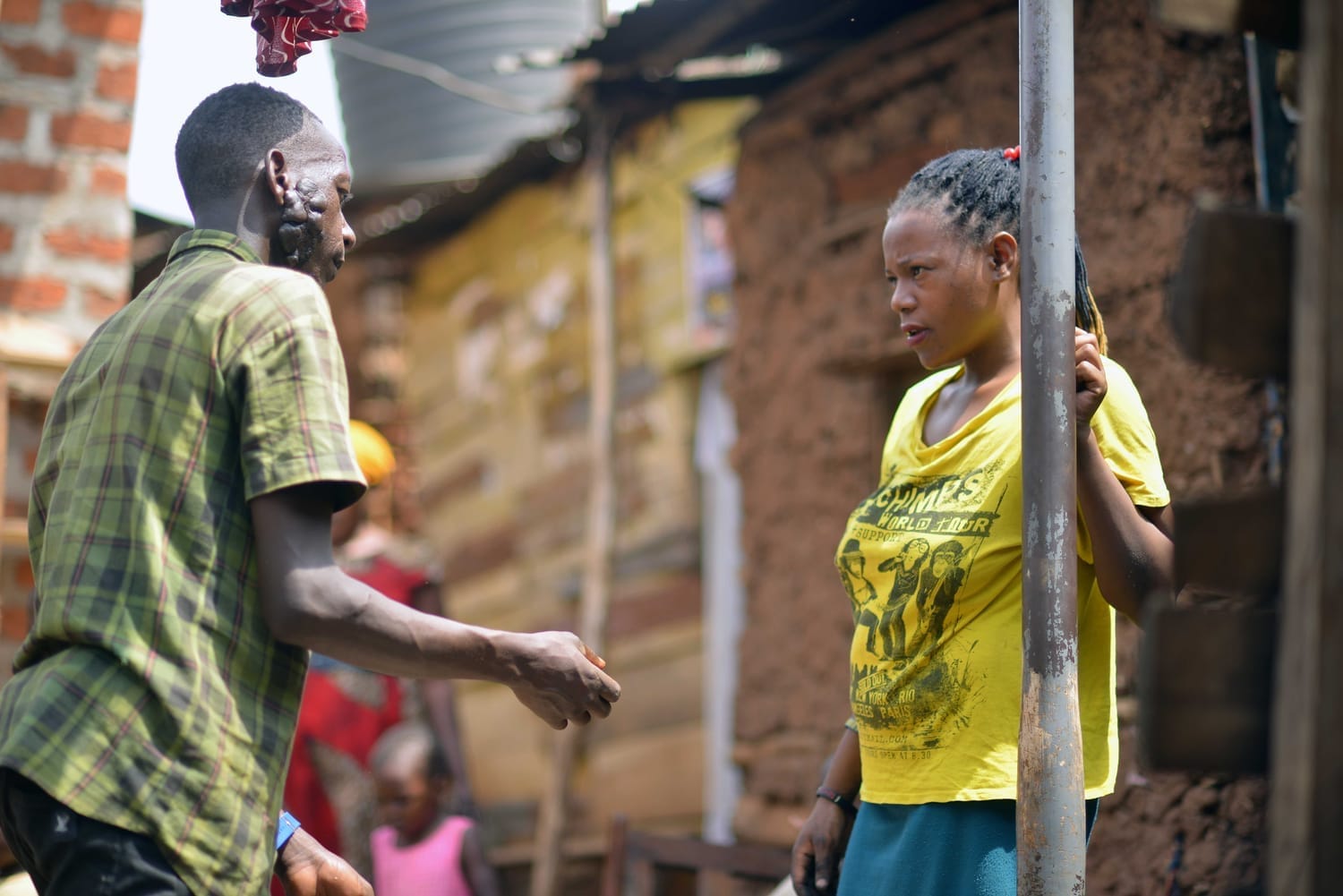Youth Innovation Amidst Neglect: A Glimpse into Banda’s Waste Economy
In the heart of Kampala’s Banda neighborhood, a young man lifts a tattered sack high above his head, shaking out its contents onto a growing mountain of waste. He isn’t employed by the city. He isn’t contracted by a private firm. He is self-employed — a waste collector out of necessity. In Banda, one of the largest informal settlements in Kampala, innovation isn’t a buzzword. It is survival.
This image, while striking in its composition, is more than just a photo — it is a testimony to how Uganda’s urban youth are quietly solving problems that institutions continue to overlook.
Innovation Born of Desperation
Banda’s youth, like many across Kampala’s informal settlements, have crafted livelihoods from what society discards. Lacking formal employment opportunities, many have entered the informal waste economy — collecting, sorting, and sometimes reselling plastic, metal, or organic materials.
Without gloves, safety boots, or proper disposal infrastructure, these young innovators are doing what the city council has failed to: keeping the streets (and streams) cleaner and reducing the health hazards associated with unmanaged waste. Their work may seem small-scale, but the cumulative environmental impact is profound. Every bottle retrieved, every bag collected, delays its journey into Lake Victoria or a clogged drainage channel.

Photo credit: Joel Ongwech
The Systemic Gap
Despite their contribution, these youth remain unsupported, unrecognized, and unprotected. Banda, like many informal communities, is not served by city-provided waste management services. Garbage accumulates in open areas, alleyways, and wetlands, posing enormous health and environmental risks.
Basic social services — clean water, sanitation, roads — are minimal. Waste collection points are nonexistent. Residents burn or dump garbage into nearby wetlands. And yet, amidst all this, it is the youth — often with no formal education, no loans, no state recognition — who are filling the gap.
These challenges reflect a deeper, structural neglect. Informal settlements are often excluded from development planning. Waste management, although critical to urban health and climate resilience, remains low on the list of municipal priorities — especially for communities outside the reach of official city maps.

Photo credit: Joel Ongwech
What Must Be Done
Policy Recognition
Kampala Capital City Authority (KCCA) and Ministry of Local Government must begin by officially recognizing waste management in informal settlements as a public responsibility. Exclusion is not just unfair — it’s unsustainable.Support Youth Innovations
There is a need for targeted investment in youth-led waste enterprises. This includes safety gear, waste collection tools, training, and access to markets. Microgrants or revolving funds could scale up these efforts while creating green jobs.Community-Integrated Waste Systems
NGOs and development actors should collaborate with community leaders and youth groups to co-design waste systems that work within the spatial and social realities of settlements like Banda.Urban Inclusion in Planning
Academia must drive more inclusive research to push for participatory urban planning. Data on informal economies — including waste — must inform city-wide policy frameworks.

Conclusion: A Call to Action
The young man in Banda does not wear a cape. But like many others, he is a silent environmental steward. He reminds us that solutions to urban challenges often exist — not in grand policy documents — but in the lived ingenuity of the people.
As Uganda urbanizes, let’s not build cities that marginalize the very communities keeping them afloat. Let's move beyond visibility to value — beyond storytelling to strategy.
Let this photo be not just a mirror, but a map — toward action.
Written by Joel Ongwech
Creative Director | Yowa Innovations
Let us know what you think in the comments!
Categories
Newsletter
Subscribe to the newsletter and stay in the loop! By joining, you acknowledge that you'll receive our newsletter and can opt-out anytime hassle-free.







